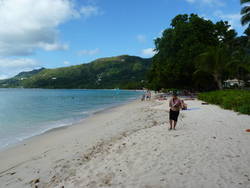Taking Stock, Looking Forward
Facing a future whose only certainty is change, small island developing states are confronted with many problems and difficulties – some intrinsic and timeless, others extrinsic and new – in making progress towards sustainable living and sustainable development. However, small island societies have a record of thriving in challenging times. Their long histories are rooted in new and innovative approaches, societal mobilization and technological adaptation.
In contributing towards a new vision and commitment for small islands, UNESCO’s own action in support of countries and communities is rooted in the fields of culture, basic and natural sciences, social and human sciences, communication and education. The underlying challenge is that of building capacities, bridges and networks, in promoting problem-solving actions that mobilize key actors and constituencies, that generate effective momentum and impact, that are culturally sensitive and scientifically sound. Addressing this challenge calls for meaningful collaboration between societal and organizational sectors (intersectoral cooperation), between regions and between islands of different affiliations (interregional cooperation) and between generations (intergenerational cooperation).
Together with governments, civil society, regional bodies and other international organizations, UNESCO takes timely actions to ensure effective implementation of the Programme of Action for the Sustainable Development of Small Island Developing States (SIDS), referred to as the Barbados Programme of Action (BPoA) since 1994, the Mauritius Strategy since 2005, and the SAMOA Pathway since 2014.







